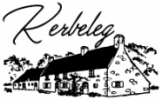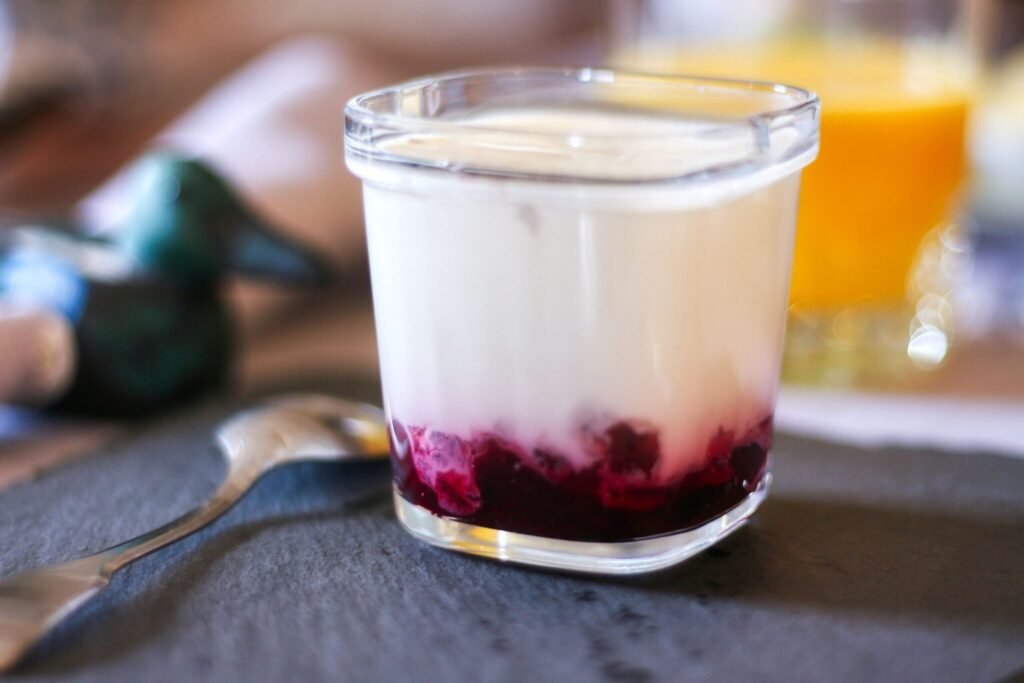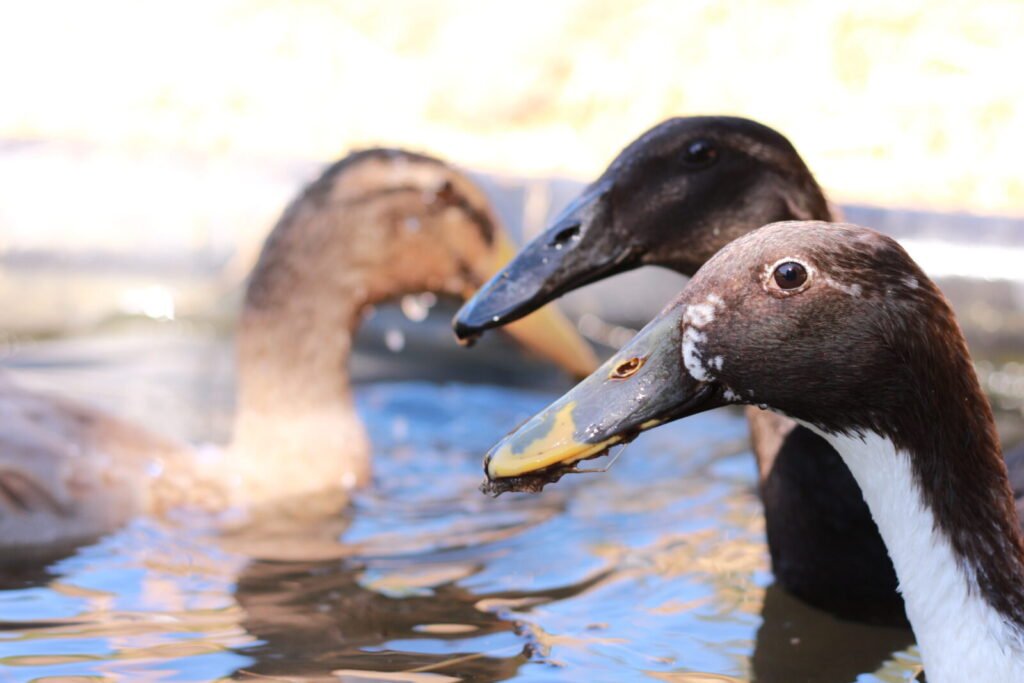
In Brittany, nestled between slopes and westerly winds, our mandala-shaped vegetable garden lives to the rhythm of the seasons… and the webbed feet of three charming residents: two walking sticks and an Indian running duck. These unusual, leggy birds, with their erect stance and brisk gait, have quickly found their place in our food garden. Much more than just pets, Indian running ducks are true partners in our cultivation. Their contribution goes far beyond the production of eggs: they actively participate in the biological balance of the garden, while making life in the kitchen garden infinitely more lively and joyful.
A duck like no other
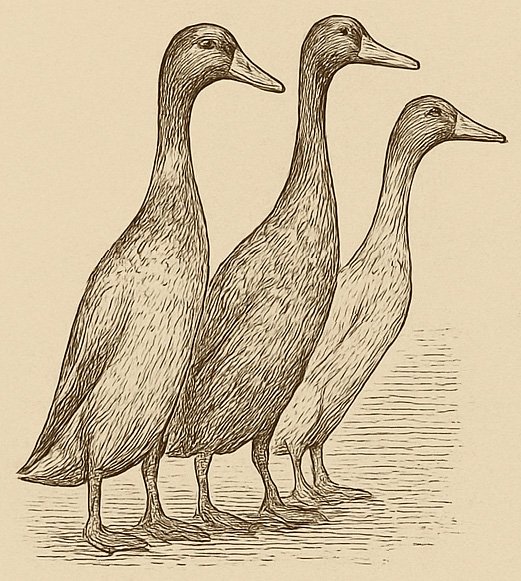
The Indian running duck stands out from other domestic duck breeds for its slender appearance and active behaviour. Native to South-East Asia, this breed has been selected for centuries for its ability to search for food by walking. Unlike heavier ducks that dabble nonchalantly, Indian runners are excellent walkers, always on the move, searching the ground with vivacity.
They do not fly, dig or scratch the ground like chickens, and their behaviour is surprisingly respectful of existing crops. They are clean birds, not very destructive, and remarkably well adapted to life in a permaculture vegetable garden.
A mandala garden: harmony of form… and of beings
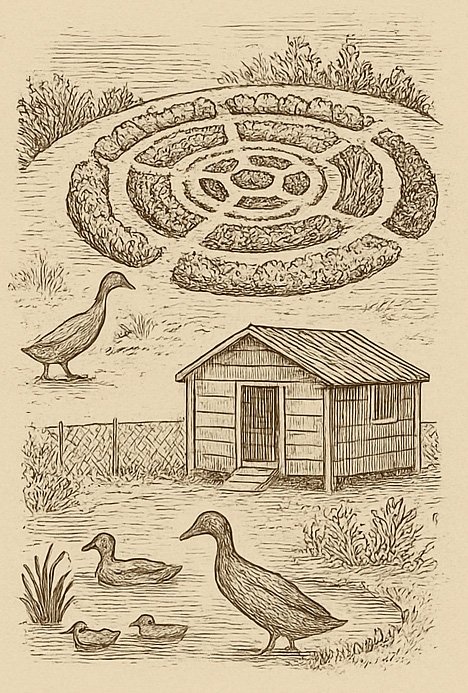
Our mandala vegetable garden, inspired by the principles of permaculture, is organised into 6 neighbourhoods, each with a specific design. This sacred geometry optimises the use of space, promotes crop diversity and easy access to the plants, and improves the circulation of water and energy. By integrating our Indian running ducks, we have continued to seek a dynamic balance between the plant and animal kingdoms.
A small pond has been set up outside one of the corners of the mandala. A spacious enclosure, with a small wooden chalet, offers them safety and comfort at night. During the day, they roam freely in certain areas of the vegetable garden, but they never stray far. They roam freely during the day.
Biological control: an army against slugs
The primary role of Indian runner ducks in the vegetable garden is undoubtedly to control slugs and snails. These gastropods, which love young shoots and tender leaves, can wreak havoc in spring and autumn, especially in damp gardens like ours in Brittany.
Indian runners love them. Their fine, quick beaks are effective at detecting and catching slugs, even the smallest ones, including those hidden under mulch. Unlike chickens, they don’t tear up young plants or scratch the roots, making them invaluable helpers in cultivated areas.
In just a few weeks, our three runners have drastically reduced the slug population, avoiding the use of sometimes dubious pellets or traps. This biological control is all the more effective because it is part of a continuous dynamic: every day, they patrol, inspect and maintain pressure on the pest populations.
A gentle life, punctuated by nature
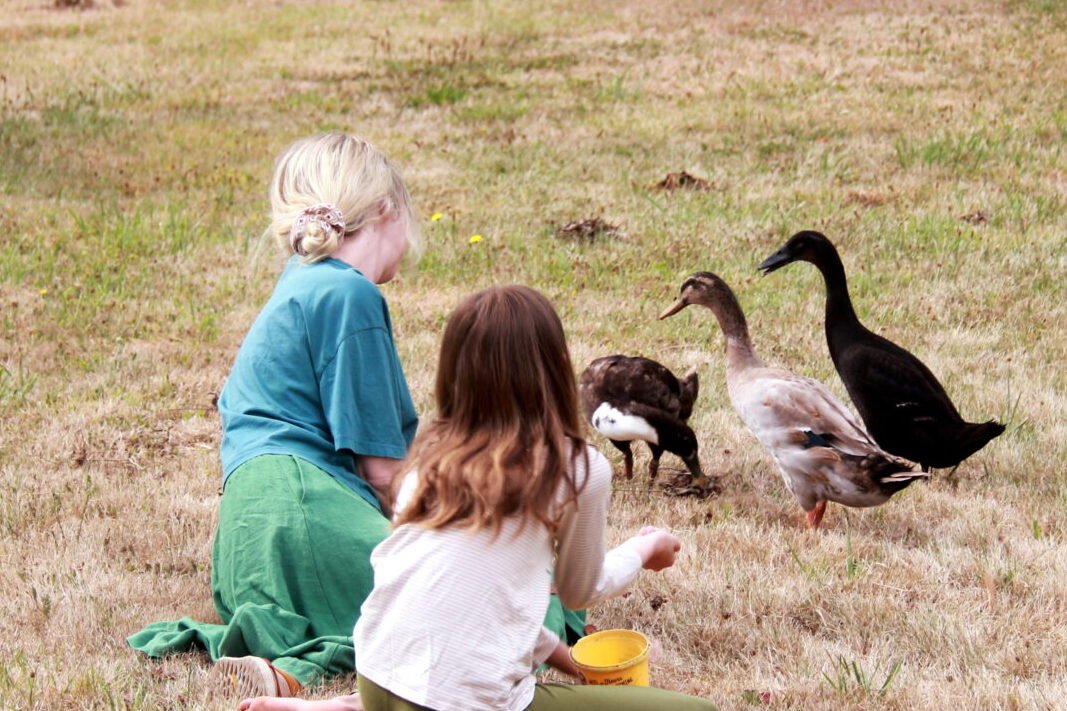
Our ducks live to the rhythm of the sun and the seasons. Every morning, their door opens at dawn. They come out, snort, stretch, and dive straight into their pond, their enthusiasm intact. Then, beak in front, they start their rounds: under the plants, between the borders, along the paths. Sometimes in single file, always grouped together, they methodically inspect their domain, the Mandala vegetable garden.
Their diet is supplemented by a mixture of organic grains, given at the end of the day to encourage them to return to their chalet on their own. They also enjoy a few leftovers from salads, damaged fruit or over-ripe vegetables, reinforcing the idea of a virtuous food cycle between kitchen and garden.
From the age of six months, the canes will lay beautiful off-white eggs with a fine flavour, which we will eat with gratitude.
A presence that transforms everyday life
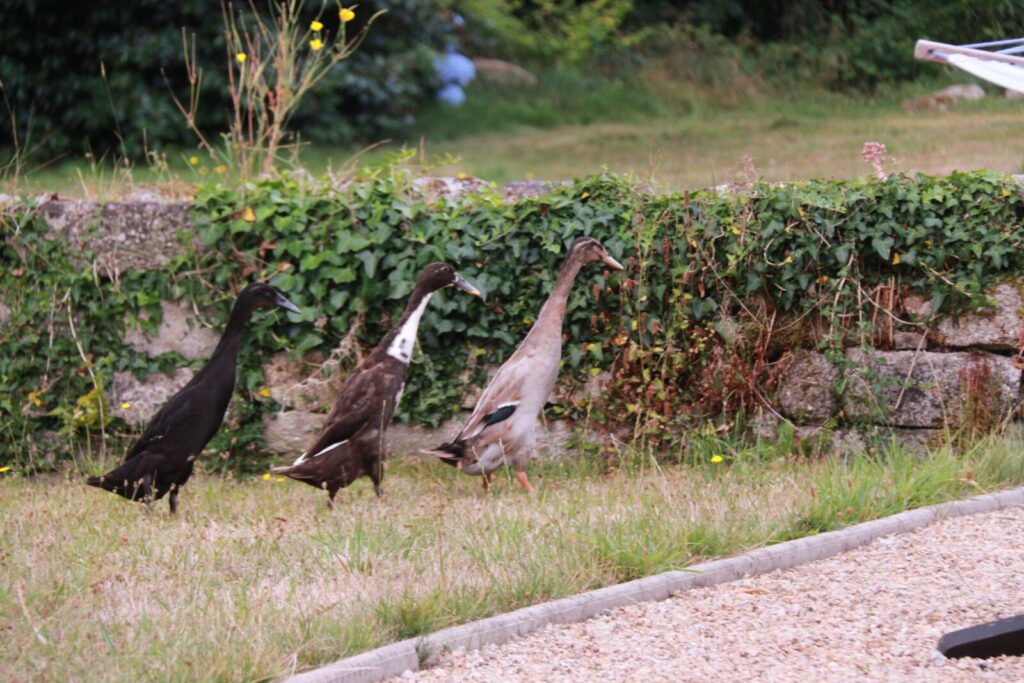
As well as their agronomic usefulness, the Indian runners bring a sensitive dimension to the garden. Their presence enlivens the space, and their behaviour is a permanent natural spectacle. They call to each other, respond to each other, and move around together like a well-practised little troupe. They bring joy to visitors, who are intrigued by this strange tribe of standing ducks, both fierce and curious.
Every day, they remind us of the beauty of respectful cohabitation between humans and animals, where everyone has their place and their role to play.
A few precautions to take
Although very well adapted to life in a vegetable garden, our Indian runners do require a few precautions:
- Protecting young plants: In spring, we restrict their access to freshly sown or planted areas.
- Secure shelter: Their enclosure must be securely closed at night, as they are vulnerable to predators (foxes, martens, etc.). The cottage should be dry, airy and easy to clean, with an opening roof and fresh hay.
- Suitable pond: Their small 1,000-litre pond is ideal for their well-being. It can be filtered with aquatic plants (iris, water mint, milfoil) as algae accumulate there and turn the water green quickly in hot weather.
- Companionship: These are gregarious animals. We felt it was essential to keep them in groups of at least three for their mental equilibrium. A single individual would quickly become unhappy.
The role of ducks in global permaculture
In permaculture, each element of the system must fulfil several functions. Indian running ducks are a perfect example of this principle:
- They control slugs and other pests;
- They naturally fertilise the soil with their droppings (in moderate quantities, and without the sudden acidification of chicken droppings);
- They transform our kitchen waste into eggs;
- They enrich the pond ecosystem;
- They create a bond and a sense of wonder among people, particularly the children of visitors to our bed and breakfast.
In return, the garden offers them shelter, food, water, freedom and safety. A real synergy.
Adopting Indian running ducks in a permaculture vegetable garden is a commitment, because they can live for more than 10 years, but it’s much more than adding ornamental animals. It means inviting efficient, undemanding and deeply endearing allies into your garden. Their simple, active lifestyle fits in perfectly with a vision of the garden as a living, resilient and happy ecosystem.
In our mandala vegetable garden, their presence is a living thread that links the circles of plants, animals and people. A peaceful and fruitful alliance between beaks, feathers, leaves and roots, to cultivate not just food, but harmony.

